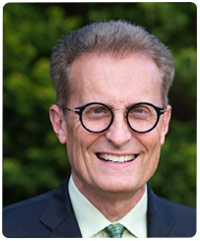
OKLAHOMA CITY (BP) – Mart Green has a vision that everyone in the world will have the Bible in their own heart language in the next 12 years.
Green, founder and CEO of Mardel Christian & Education, a chain of 37 stores in seven U.S. states, is helping lead a Bible translation project featuring a variety of organizations with the goal of translating the Bible into all known languages by the year 2033.

The translation effort, called illumiNations, includes a partnership among 10 of the largest Bible translation organizations in the world, including Wycliffe Bible Translators, American Bible Society, Pioneer Bible Translators and Deaf Bible Society.
Green, son of Hobby Lobby founder and CEO David Green, also serves as the ministry investment officer for Hobby Lobby.
The goal of the illumiNations alliance is to eliminate “Bible poverty,” or not having Scripture in a language one can read and understand.
The group estimates there are 3,800 language communities that do not have a completed Bible in their language, and 2,000 of these groups do not even have one verse of Scripture in their language. The number of people worldwide who do not have a Bible in their language is estimated to be more than 1 billion.
Green said the ministry of Bible translation has been on his heart for a long time after a “life-defining moment” more than 20 years ago. During a trip to Central America, he witnessed a man become overwhelmed with emotion after receiving a personal copy of a completed Bible in his own language that had taken more than 40 years to translate.
After previously being unsure about whether the ministry of Bible translation was worth the time, money and effort it involved, Green said his outlook on the ministry changed in that moment.
“The Holy Spirit prompted me with a question in my heart, ‘Why don’t you tell this man he’s not a good return on investment,’” he said.
“I then started to think what kind of return on investment am I to God? I’ve grown up in a Christian family and work with a Christian organization, but I didn’t read the Bible on any kind of consistent basis. But on that day I made a vow that I would get up every morning and read the Bible as well as continue to invest in translation projects. I went from focusing on a practical return on investment to looking at the eternal return on investment.”
Green began meeting with leaders from the top Bible translation organizations several times a year starting in 2010. As things stood then, those groups estimated that the Bible could be translated into all world languages by the year 2150. Agreeing this was far too long, the alliance decided to work together to attempt to complete those translations by 2033.
The illumiNations group launched a digital campaign to fund the translation effort on March 24, 2021, under the name “I Want to Know.” The campaign emphasizes testimonies from those who do not have a Bible in their heart language. People can join the campaign by donating $35, which will fund the translation of one Bible verse into a needed language. Participants are encouraged to use the hashtag #IWTKBible on social media.
“Nobody could say they could eradicate Bible poverty themselves,” Green said. “There’s no organization big enough, and there’s no donor able to say that. Yet when we all come together, all the agencies and partners can say they are a part of eradicating Bible poverty. They can be a part of the whole picture put together.”
Todd Borger, professor of Old Testament and Hebrew at Southeastern Baptist Theological Seminary, said he has seen firsthand how important the work of Bible translation is for the Great Commission.
Borger and his family previously served as missionaries with the International Mission Board in Southeast Asia. It was there that Borger realized how vital it was for ministry that the Bible had already been translated, and how it something American Christian can take for granted.
“We have so many Bible translations in our language we can kind of grow numb to that,” Borger said. “We can really be spoiled by that and grow numb to having all of the resources that we do. One thing we can do as American believers is to be aware of what is going on around the world. Be aware that things around the world are not like they are here. Make yourself aware of publications and reports of what is going on in terms of Bible translation and all sorts of ministries. Then allow this knowledge to create in you a gratefulness for the access we have to Scripture.”
Borger said although the enormity of the task can be overwhelming, local churches can play a key role in supporting translation efforts through things like prayer, financial support, mission trips and focusing on ministry to specific people groups.
“We believe the Bible is the Word of God, and this is the Word that brings about salvation,” Borger said. “We of all people need to know the importance and significance of this work of Bible translation. I would want for Southern Baptists to know the importance of this and to be involved passionately with this work. If this is the way that God has made for salvation and for us to preach Christ crucified then we’re limiting ourselves if we don’t embrace this as a global strategy.”















